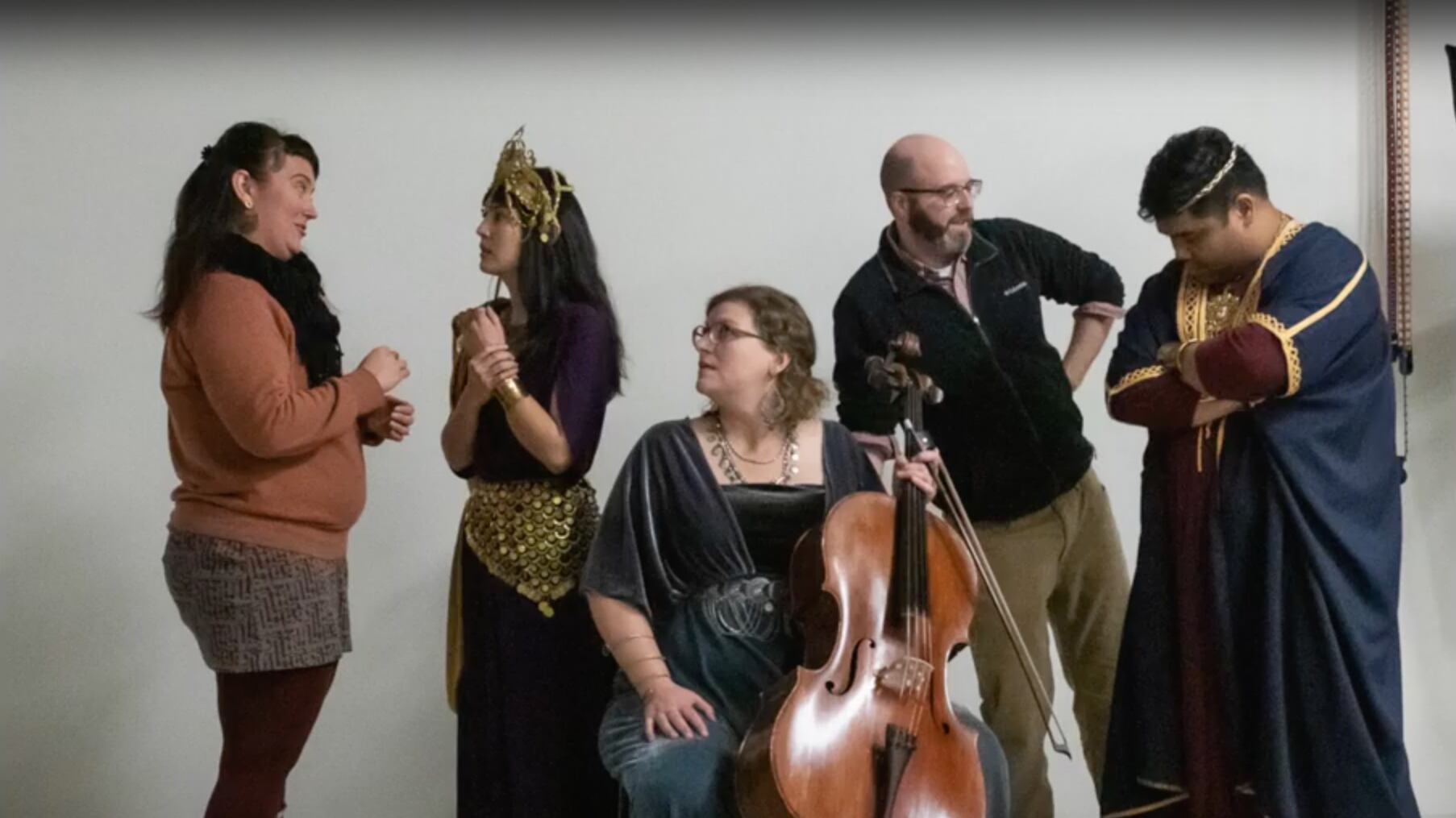As with practically every theater company across the country this past spring, the Northwest Classical Theatre Collaborative's scheduled shows were all canceled in the wake of the COVID-19 pandemic. Following recent productions of An Iliad and Three Sisters, new adaptations of works by Homer and Anton Chekov, respectively, the acclaimed troupe was preparing to open another modern take of a classic: Sophocles' immortal tragedy Antigone. The touring production was supposed to launch in April at Oregon State Penitentiary in Salem, then continue to play at other nontraditional venues, like homeless service agencies and rural schools, to reach culturally underserved people. But the entire project was put on hold—until just a couple of weeks ago.
After months of trying to figure out how to go on with the show, director Patrick Walsh partnered with Portland production company Paradise Meow to film Antigone, which will then be distributed to prisons, shelters and schools for screenings. Production took place Aug. 22-23 at Wapato, the jail built by Multnomah County that was never used.
As Walsh and his frequent collaborator Paul Susi (who plays Kreon) told WW shortly before the coronavirus stalled their slate of presentations, exposing incarcerated audiences to art is only the start of their mission.
WW: Why did you choose to stage Antigone?
Patrick Walsh: Our last performance of An Iliad was at [women's prison] Coffee Creek Correctional. It was amazing but, you know, very heavily male-centric. So, I started to think about giving these women stories with a strong female protagonist. How great would it be if our male audiences had the chance to empathize with a strong female heroine, which doesn't happen much in present-day literature, let alone classic drama? We're doing the West Coast premiere of a translation by Anne Carson. She's a brilliant poet and classicist and, the best part, a female, so the play is seen through that lens. There are very few widely available translations done by women, so to have that is just fantastic. The language is very modern, very urgent.
What is the message of the adaptation?
Walsh: Strip away plot mechanics and the play questions personal responsibility when somebody knows the right thing to do but doesn't want to die for speaking out against unjust laws. Antigone wants to bury her brother. It's all about conflict after a very long war. People are fighting for recognition and dominance, and I think that will be really interesting for our audience to investigate.
Paul Susi: Why is she punished for loyalty to her dead brother? Why does she have to be responsible for all these traumas that she has inherited? What are your debts to family and feminism, and your own conscience? They're all juicy, challenging topics, and we're able to go there because it's classical theater.
What are your audiences like?
Walsh: If I'm being honest, there really wasn't much of a difference between the reactions of culturally underserved audiences and somebody at a normal theater, but I would say our best receptions were at the most restrictive places—maximum security, homeless shelters. I think we realized that breaking down these walls was actually part of the project.
Susi: With An Iliad, I was certainly worried about how these ancient Greek names related to day-to-day life in prison, but we actually found that the adaptation by Denis O'Hare and Lisa Peterson takes The Iliad out of time. By focusing on Achilles and Hector, the story's really about examining cycles of rage and violence. How can gods or heroes or anyone break those cycles? That becomes something every Oregon community's wrestling with right now. How do I get out of my own temper, my own addictions? It's similar with Antigone.
Are there any concerns about safety when you perform at these venues?
Walsh: Our actors aren't worried. We had some preconceived notions of people in prison, but we quickly realized those fears were pretty unfounded. There's going to be corrections officers in the room, obviously, and you have to be at a certain level within the institution to be able to attend a performance like this. We're not getting guys who were in the hole, you know? The people who signed up were really game for the experience.
Susi: Between my background in social services and work with at-risk youth in places like MacLaren Correctional Facility, I was pretty familiar with the world of incarcerated populations. If anything, I'm prejudiced against the more reputable companies in town charging $100 a ticket. Culture becomes a museum piece in those spaces. People are separated from emotional truth and authenticity because they're looking at costumes and lights and the fancy lobby sponsored by U.S. Bank or Wells Fargo. When barriers of privilege are gone, we fundamentally share the play together because of choice. These prisoners do not have to come to the show. We don't have to go into a prison. But we are choosing to affirm our common humanity. That gesture, just showing up for one another, is where the work really begins.
